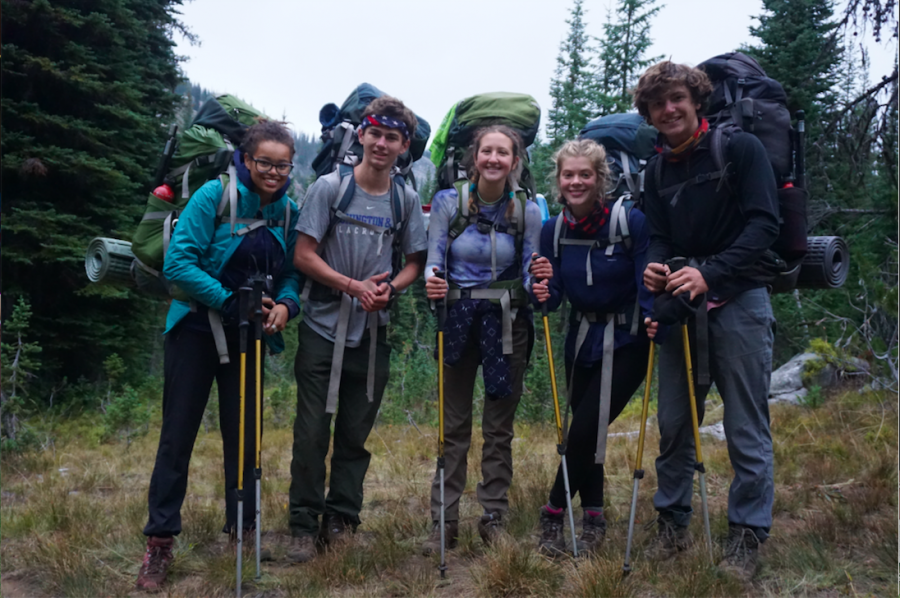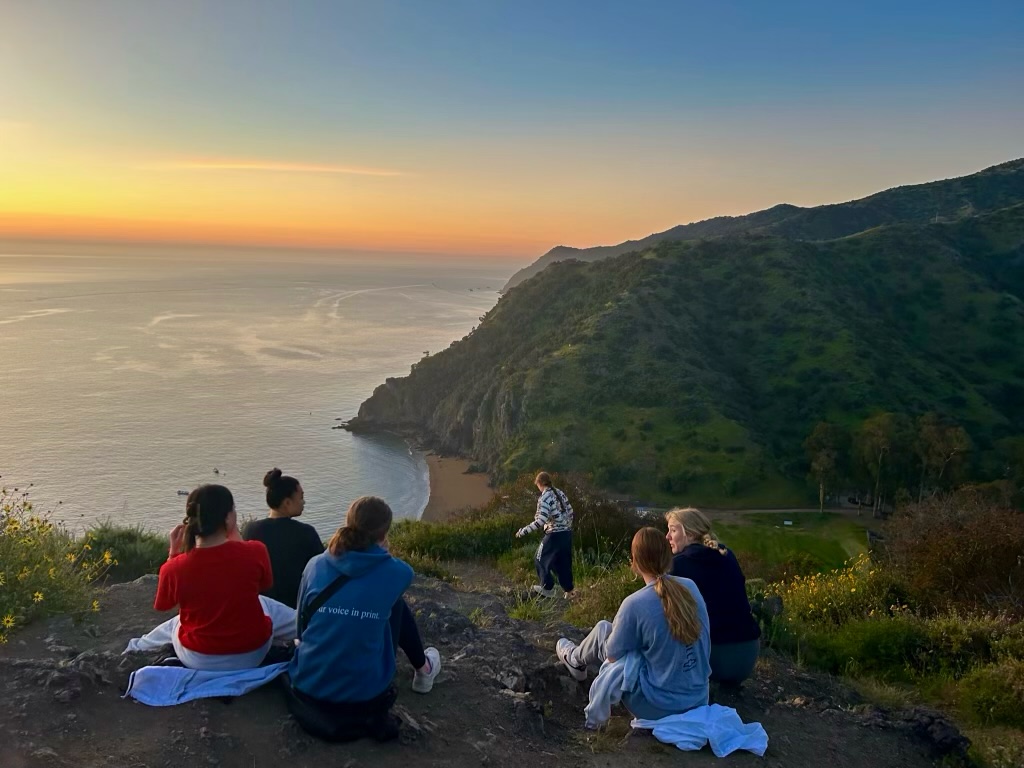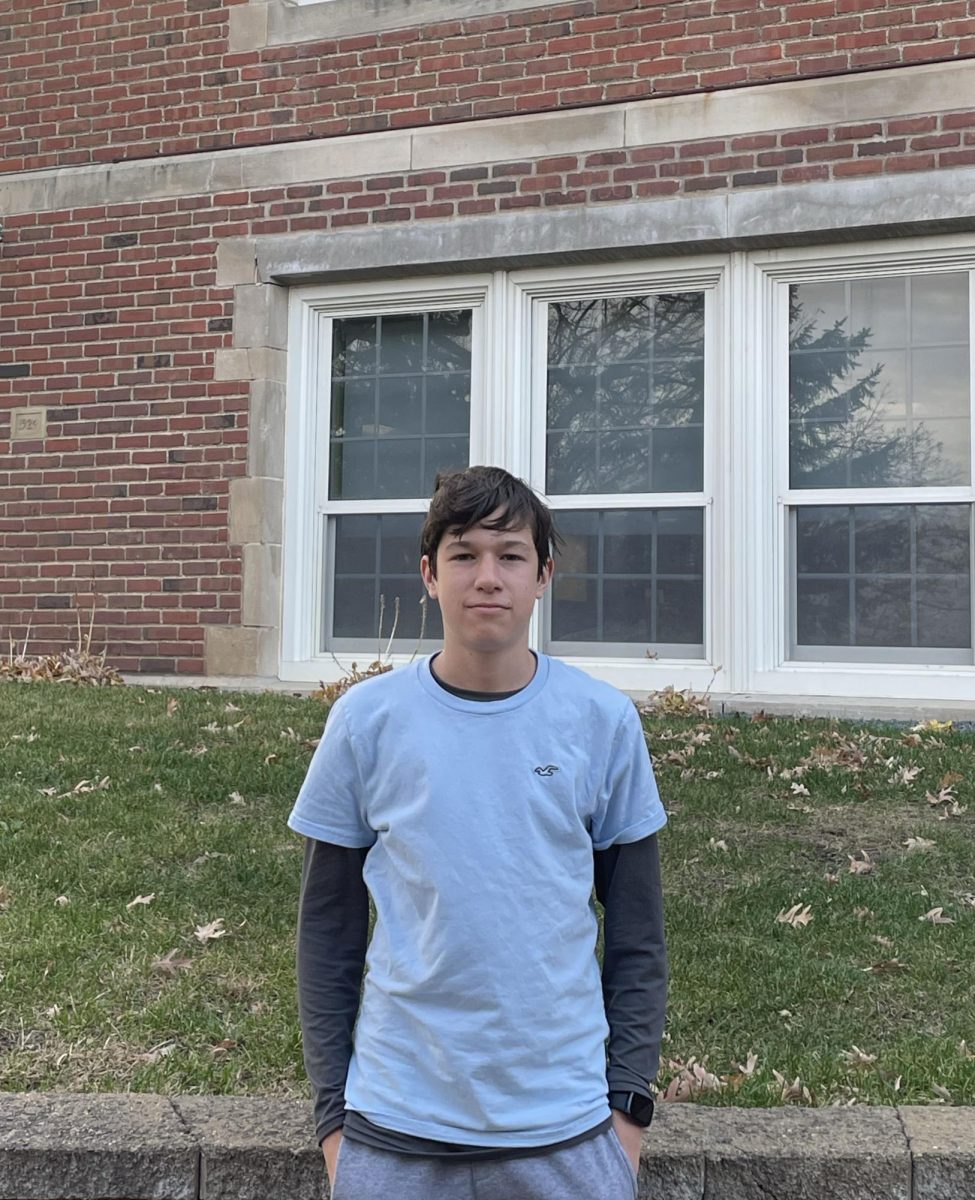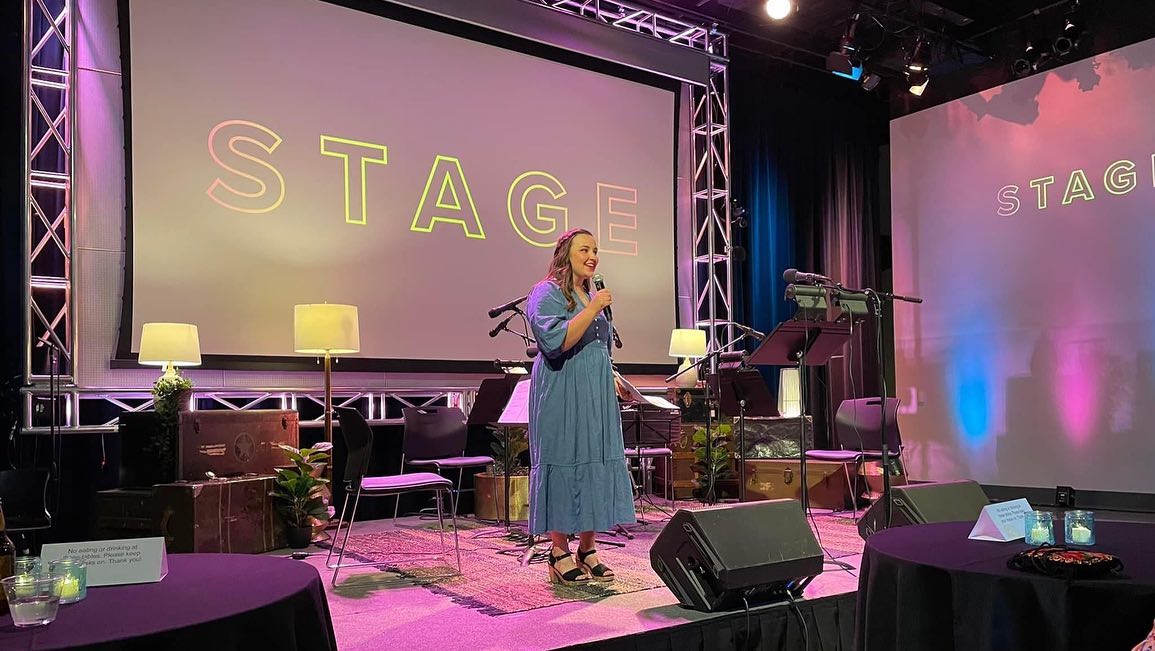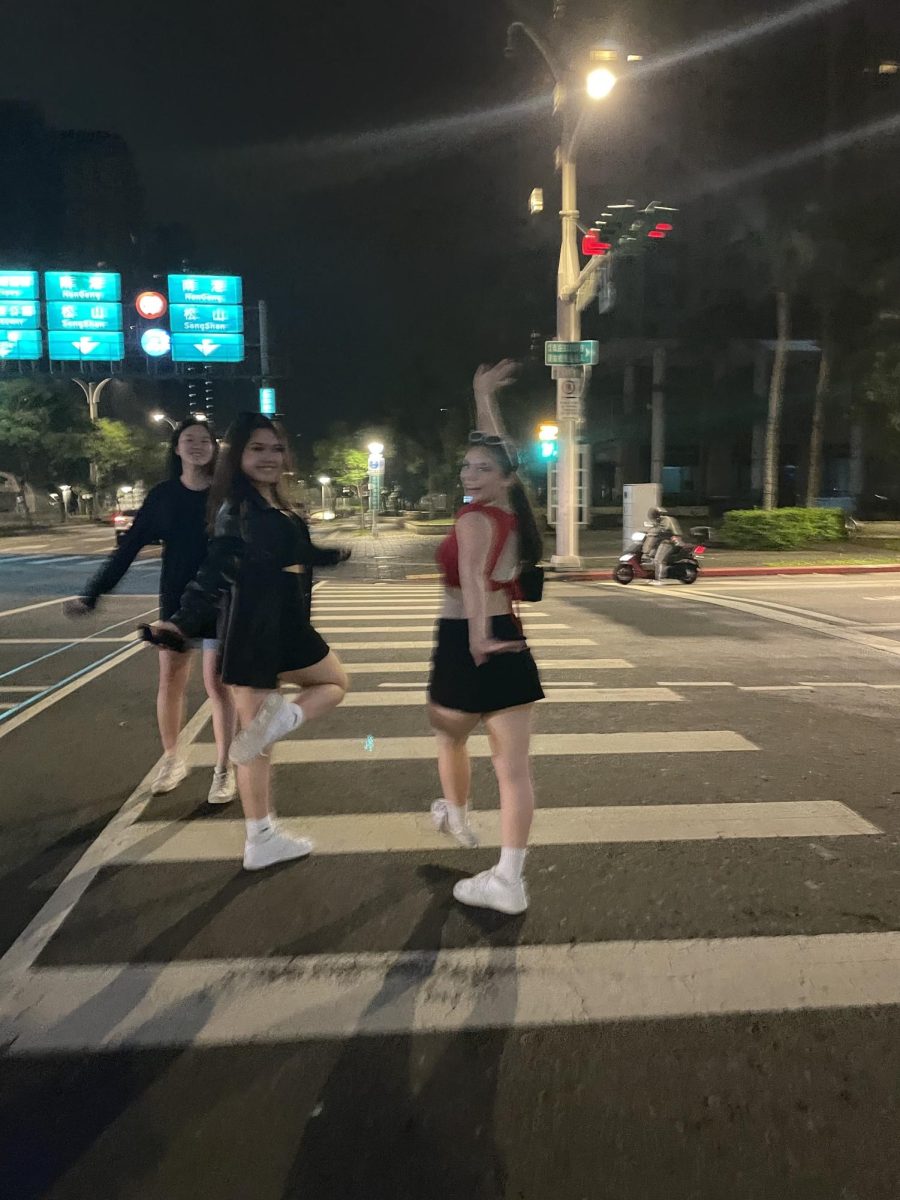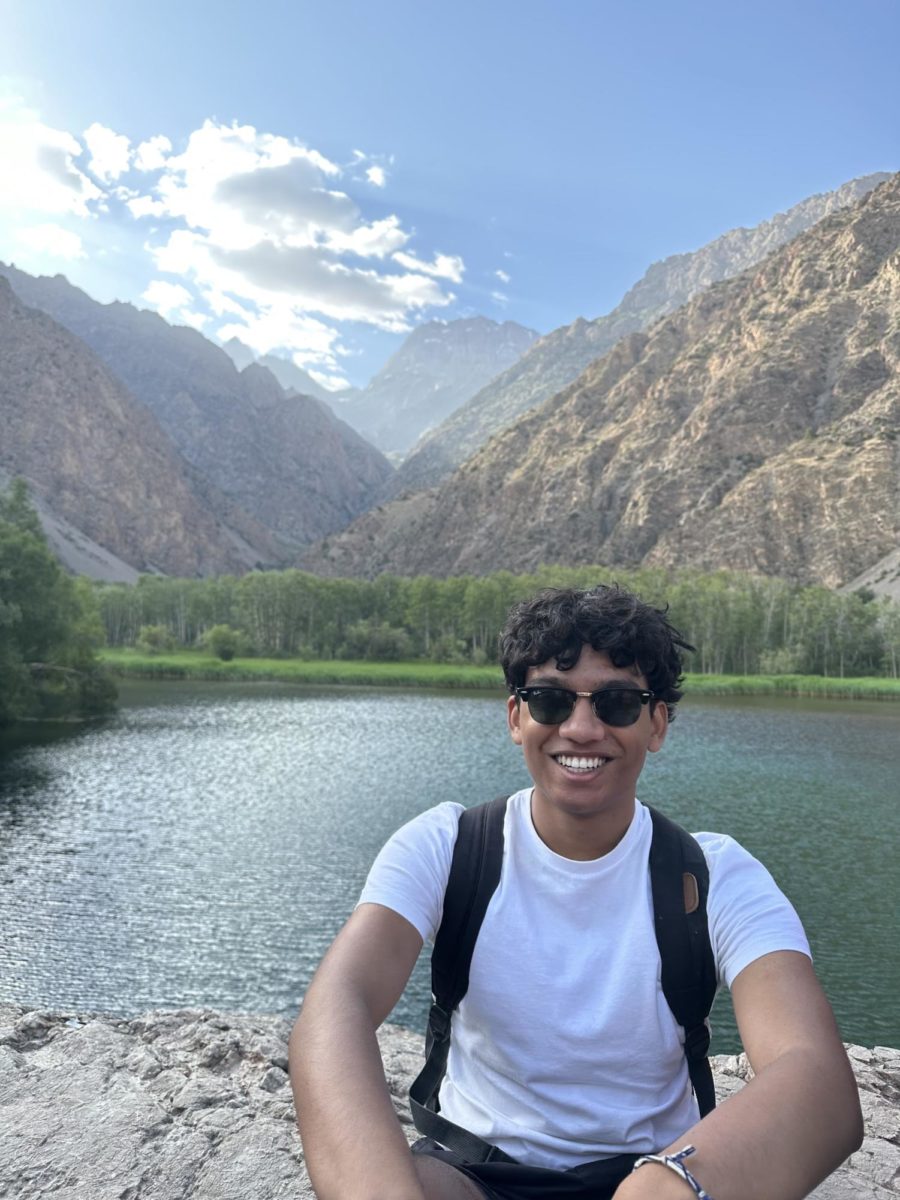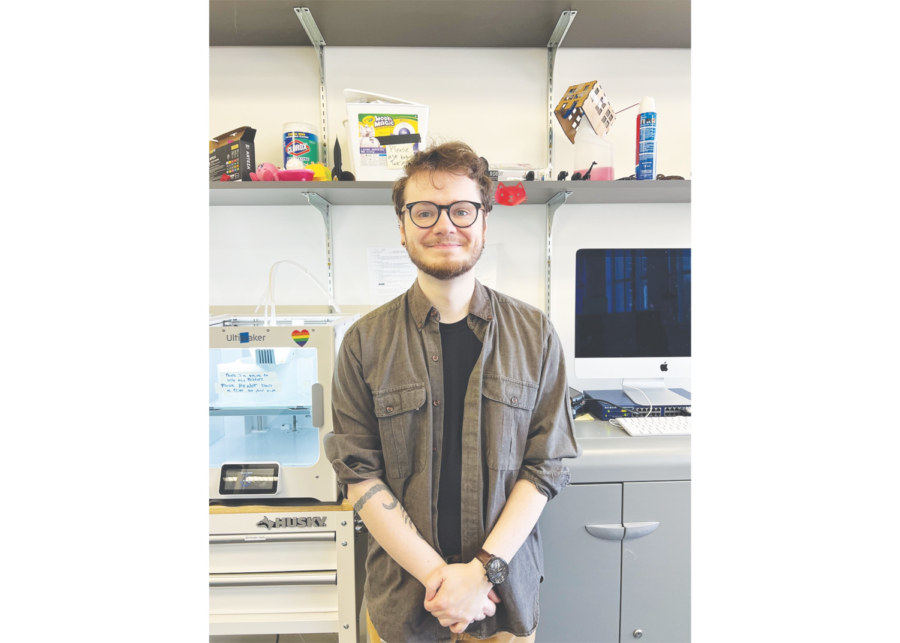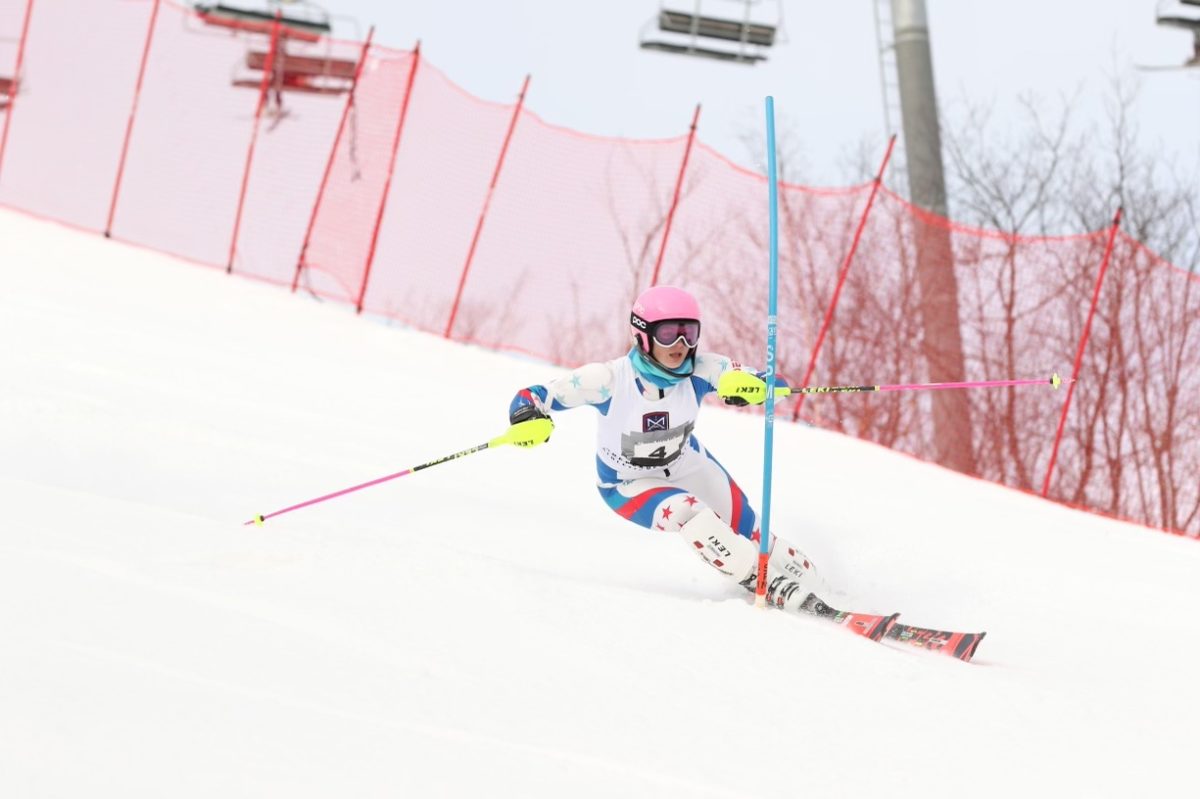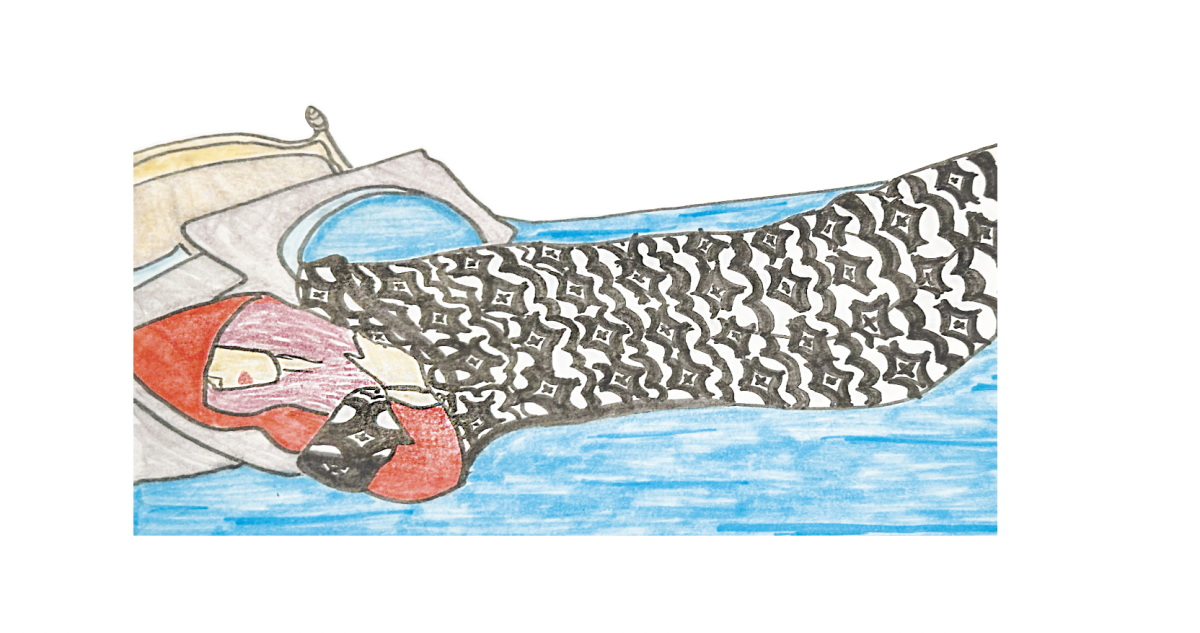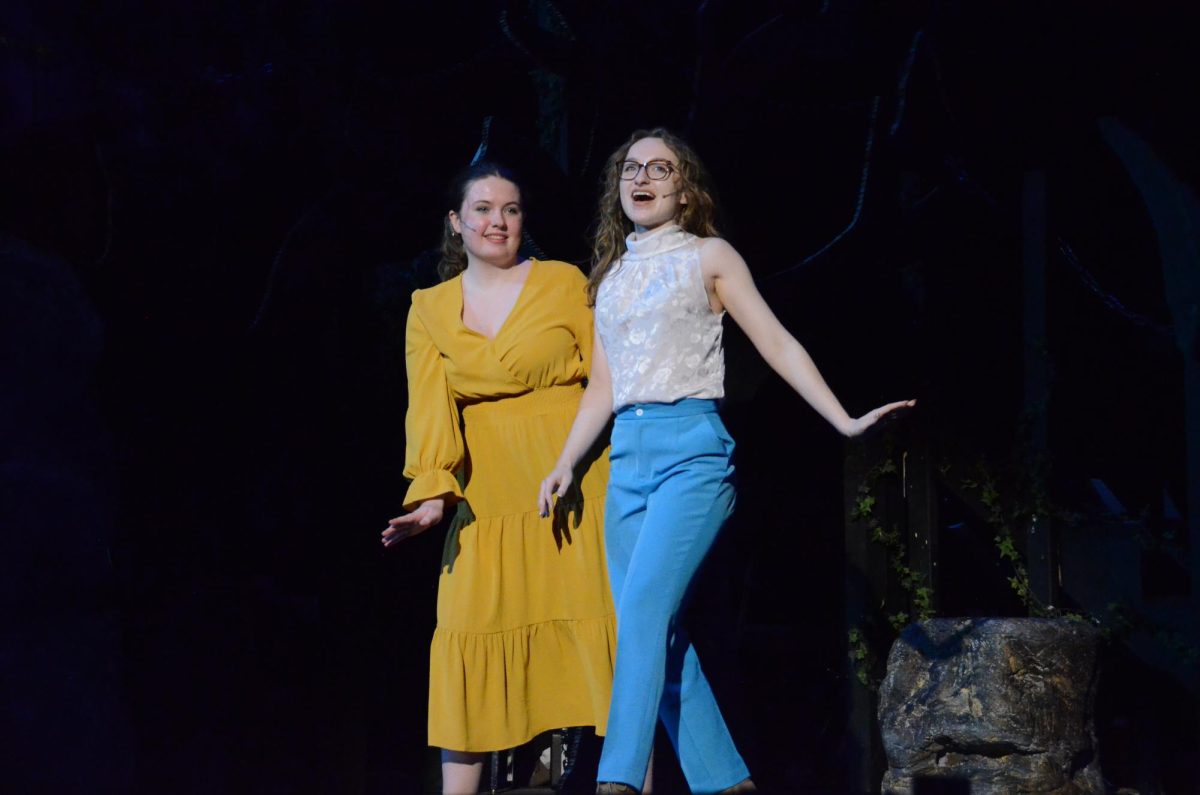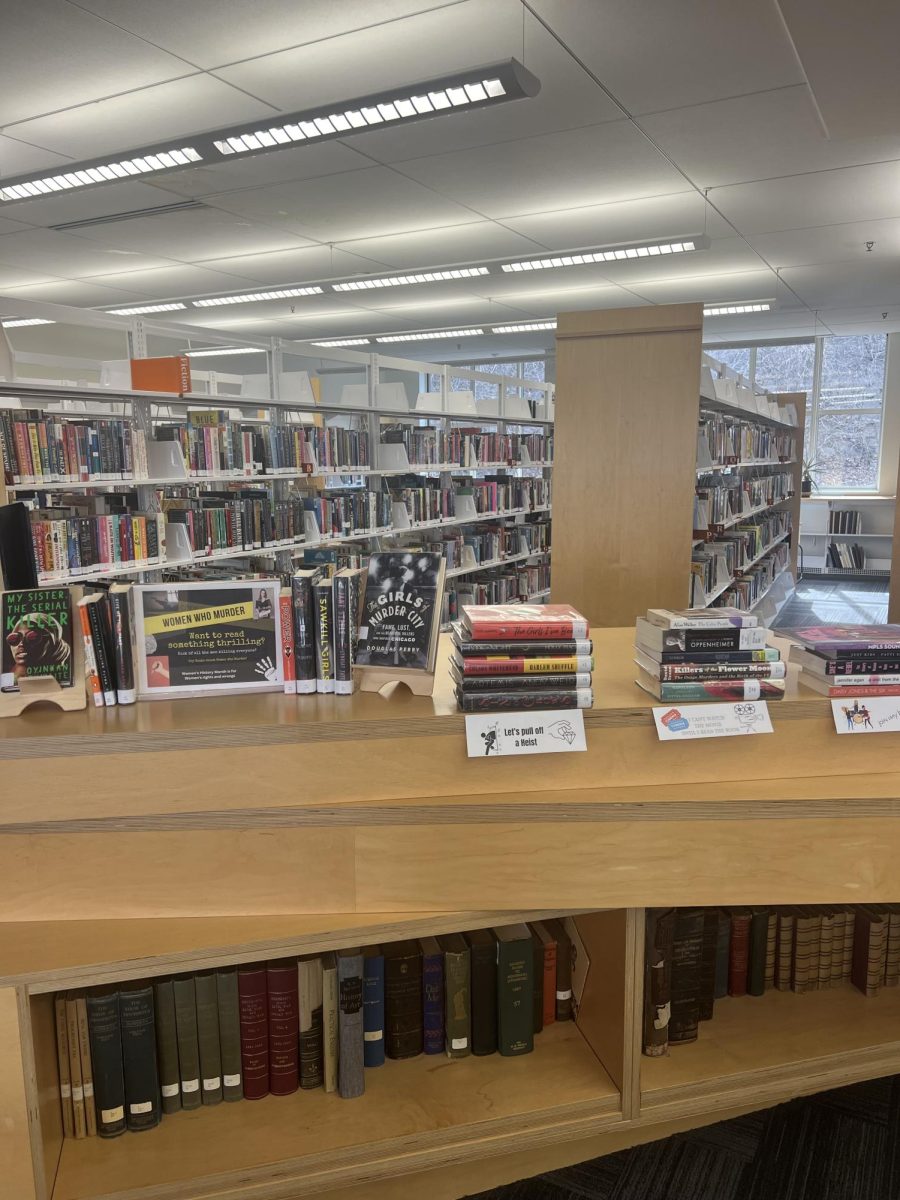Rabi Michael-Crushshon ’22 had the opportunity to participate in a semester away program this year amidst the pandemic and intense political climate, but from the experience, she learned a lot about herself and how she grew as a person.
Michael-Crushshon spent her first semester of the 2020-2021 school year at The Alzar School in Idaho. Like most students, she’d learned about the program during announcements at school, but was ultimately drawn to the experience out of the three schools she applied to based on opportunities to speak more Spanish, learn to kayak, hike, and backpack, grow leadership skills, and, of course, travel to Chile.
During her time at Alzar, Michael-Crushshon got to experience a lot of new things that changed her perspective on life. She went from a home in the city to living in a yurt with five other students. Amidst outdoor schooling, Alzar students went on two two-week expeditions backpacking in the canyons. During an expedition, Michael-Crushshon became “Leader of the Week,” where she learned how to coordinate with other students to make a schedule, guide the backpacking group, set the pace, and watch over her fellow students. She also remembered her first experience being a leader at Alzar, saying “when I read the part about leadership, I was like ‘oh my gosh, I’m not doing that.’ I was so nervous about being leader of the week because you have to speak with all of your peers, and then I ended up signing up to be leader of the week during parents’ weekend, which meant that me and two other of my peers had to work to create a schedule for what it was going to look like, and we had to create scripts because we were talking to all 30 students and their parents on Zoom, so that was so much fun and so worth it, but it shows that even though at the beginning I was completely terrified to talk to the people in my yurt, I stepped out of that comfort zone and had an amazing experience.”
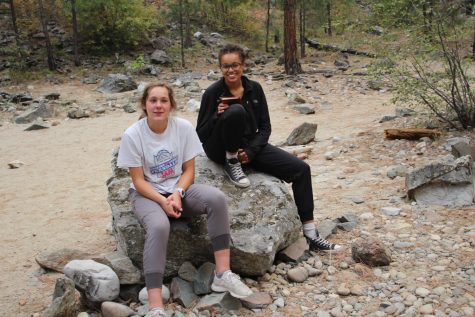
Michael-Crushshon had never backpacked before, but she noticed that “To me, having everything on your back and just knowing that everyone with you and everything with you is all that you need for that time is such a weird feeling. It’s kind of freeing because you don’t have to worry about anything else because I feel like in the world, and especially in the United States, we are so focused on having things, on having the next thing, the most recent, popular item, but during those 10 days, I couldn’t worry about that because we were all there for each other. The only thing we had to worry about was everyday walking and making sure we got to where we needed to be and making sure nothing happened to anyone. If something did, we were the people there to help them.” She noticed later that before coming to Alzar, she would not have characterized herself as an outdoorsy person, but from the experience, she felt connected to the outdoors more than she ever had before. She says, “it definitely made me understand the importance of being outside and being in touch with nature because while at Alzar, there were stressful moments, school-wise, but everyday we would have an activity outdoors, so it was a way for us all to release the chaos of our school lives and relax and just have fun with each other. So I realized how important it is for me to just be outside and just separate myself from school because it’s still gonna be there when I get back, but I need to also take care of myself and have fun.”
Unlike Blake, being at Alzar allowed for her to escape from such a rigorous environment. Rising into Junior year, Michael-Crushshon had started to notice the intense stress that came with being a Blake student, and wanted to have more fun learning instead of feeling trapped in a cycle of memorization and competition. “If I get a B on something, that’s bad even though we’re already learning at such an advanced level that I’m actually doing good. It’s like I’m always comparing myself to my classmates who are amazing and incredibly smart, but they’re all getting A’s, and so if I get an A- or a C, that’s terrible, and so it’s always that competition, but not in a good way. So that was something that was different at Alzar.”Alzar’s curriculum allowed her to be further immersed in her education, and she loved learning about how Native Americans used to live on the exact spot where they were camping or learning about the wilderness while experiencing it firsthand on an expedition. She noticed that teachers were more focused on what they were learning versus where they were in the material. She also learned a lot about leadership and gained more confidence in herself through leading her team through expeditions and other events, which she thinks greatly helped give her skills to be used later on. To her, it felt like she was learning about something that would really help her in the future, and it taught her to stop stressing about everything else that’s going on in her life and just be in the moment.
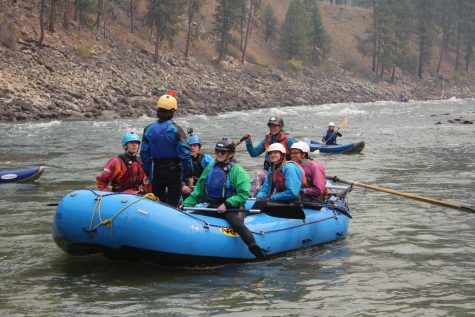
Of course, a few of the school’s plans for the semester did have to change because of COVID-19, and Michael-Crushshon ended up going on all of her outdoor adventures in the mountains and canyons of the U.S. In addition to that big change, she describes how her classes were outdoors for the first two weeks, how they were constantly tested for COVID-19 throughout the experience, and how living spaces were separated by curtains within individual yurts where they lived. She says that “Anytime someone got sick at all, they were quarantined and got tested, so that was a little scary, because you don’t want to go to the faculty and say yeah, I have a little cough’ and be quarantined for a week.” Still, she was still able to be around people much more frequently than people at Blake and was very grateful for the ability to see and hang out with friends before going back into a strict and isolating quarantine schedule. As she says, “I’d rather have the experience that way than not have it at all.”
That wasn’t the only struggle Michael-Crushshon had to face on her semester away, though. What she didn’t expect was how the intense political climate of the U.S. and issues of constant micro aggressions would hinder her ability to relax in the same way as her other peers. As only one of four people of color at the school, Michael-Crushshon and her fellow students of color noticed countless occasions when they experienced subtle racism on a predominantly white campus. “It definitely was a hard part of my experience, but coming from Blake, I’m used to micro aggressions. I’m used to having to deal with that, but I feel like being a person of color, you gotta be used to that because it happens everywhere. Not that we should be and that us four should have had to do with that, but it was just something that happened. The worst part of it was probably that the faculty administrators didn’t do anything to deal with it, and they were also doing a lot of micro aggressions and being racist, but they weren’t aware that they were doing that. And they weren’t doing anything when we went to them about students. So that made it a really tricky situation because they were the people who were supposed to be there to help us, but they weren’t able to do that because they didn’t know how.” Michael-Crushshon recounted hearing white students using the N-word, seeing her fellow black yurt-mate being told to dance or rap while people touched her curls without her consent. She remembered the one male person of color, Javier, being called “Jose” or “Juan” by one of his roommates despite him knowing what his real name was. She and her yurt mate were even called aggressive for trying to stand up for themselves.
To make matters worse, they were in rural Idaho. Every time they drove outside of the campsite, Michael-Crushshon was bombarded with Blue Lives Matter, Trump 2020, and Confederate flags hanging from every building they passed. She recalled one specific expedition where she was the only person of color on the trip, and one bus ride marked one of the worst days of her time at Alzar. “There was a giant Trump 2020 flag, and two people on the bus pointed at it and then they both stood up and high fived, and everyone was laughing. And then a block later, we turned into the parking lot for the campsite, and I was just completely terrified because I was the only people of color and half the people on the bus were Trump supporters, and everyone around me was white. The faculty administrators for the expedition, none of them were aware that this was happening at all. The campsite was packed, so I was terrified for the rest of that day, and really the whole time, because I couldn’t leave. I couldn’t tell anyone, and I had no idea what was gonna happen, or if anyone in that campsite was a white supremacist. It was clear that there were more of them in this area, so I was just running worst case scenarios in my brain, stressing out completely by myself… And then it was night and we were walking around and it was dark outside, so anything could happen and no one would see… But obviously I was fine, nothing happened, but it was the fear of being there and no one knowing.” It’s worth mentioning that this expedition happened while the rest of the world was waiting for election results, and they weren’t told any information on the outcome until they got back three days later. Michael-Crushshon remembered it as “an awakening moment… it was a balance of escaping and also being stuck, so one thing we just practiced was being present.”
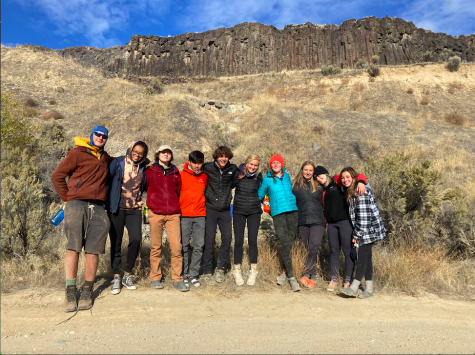
Despite the multiple hardships she went through while at the Alzar school, the connections Michael-Crushshon made with her yurt-mates, her new friends of color, journaling, and other students around the camp really helped her through. Because of their shared experiences, she and her three other friends of color joined to work with the Alzar administration to discuss the problems that they faced and come up with solutions. They shared their stories, and pointed out to faculty what needed fixing. Now, they’re part of a board to help improve the Alzar school, and Michael-Crushshon has currently been working on an affinity group for alumni and students of color to make Alzar feel more welcoming for them. To her, “It’s like, ok, clearly I’m not included in this state. Most of the people here do not want me to be here. I’m doing community service under Blue Lives Matter flags. Clearly I’m not welcome here. But, I would appreciate to be welcome in the community I’m living with, so when there’s not accountability or punishments for students or faculty who are just being racist, it’s really disheartening.” While it was definitely difficult to be away from home, Michael-Crushshon’s bond with her yurt-mates made living apart from her family more enjoyable. “We were always with each other, so you don’t really have any privacy, but we got to know each other really well. And we had ‘yonding’ which is what we called Yurt Bonding at night when we all just sit together and just talk… Yeah, it was hard to be away from home, especially when things happen because the first thing you want to do is talk to your parents or be in your room, but you can’t really do that because you’re in a yurt. But at the same time, I enjoyed being on my own, and just being away from all of the stress of friends and school. But there were points where I really wanted my parents, and I think I just kind of pushed through it and focused on the fact that I was having an amazing experience. Or I found the friends that I did have there and just hung out, or we talked in our yurt, because even though I was away from my family here, in the yurt, we were building our own family, so we were all there supporting each other, laughing together, crying together. So especially with the racism and all that, having my parents would be nice, but we were able to help each other and support each other and care for each other, which is what you look for in your family.”
Michael-Crushshon’s semester away program taught her to grow a lot as a person, through both the good and the bad experiences she had. While she hopes that Alzar will improve in their diversity, she still would recommend Alzar or any other semester away program in general with the warning of what she went through in mind, because the experience prepares you for leaving for college and being away from your family. For Michael-Crushshon, Alzar was her first adventure away from home, and she found that it was beneficial to see what it was like to live without the constant support of her family. In addition, Alzar opened up to a world of new activities that she would never have been exposed to otherwise. Still, the biggest thing she learned from being at Alzar was to step outside of her comfort zone and learn more about what she likes to do. She says that “At Blake, we’re so stuck in our community, and I am especially because my parents both work there, so every event that we ever went to was Blake. We were just surrounded by Blake people, and that isn’t bad, but it’s such a small community. At Alzar, I was able to meet people from all over the country and learn about people’s stories that are different from mine, and it was very interesting. Now I can say ‘yeah, I know someone from South Carolina!’ I barely knew where South Carolina was before I got to Alzar, so I think reaching out and learning about other people and learning about other peoples’ perspectives, is so important. That’s what I think part of living is, seeing other things and exploring, and learning different perspectives, and learning different activities that you’re experimenting with and having fun with those, because otherwise you’re just stuck.”

